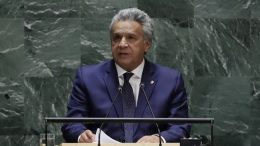OPEC+ To Extend The 9.7 M bpd Cut By One Month; It Means 100,000 Barrels Less Than In June, And Almost 10% Of The Global Supply
OPEC+ agreed over the weekend to extend the cut in oil production until July 31. Mexico has not signed up to the new agreement. The return of 2 million barrels of crude oil to the daily supply will be postponed until that date. In addition, it was determined that Iraq and Nigeria, which have so far failed to comply with the agreed production cuts, will carry out an additional reduction in July.










